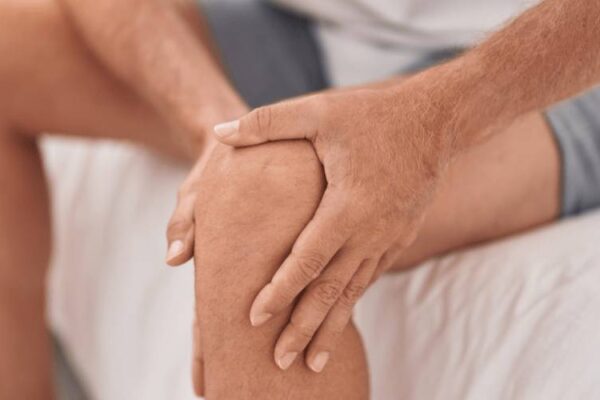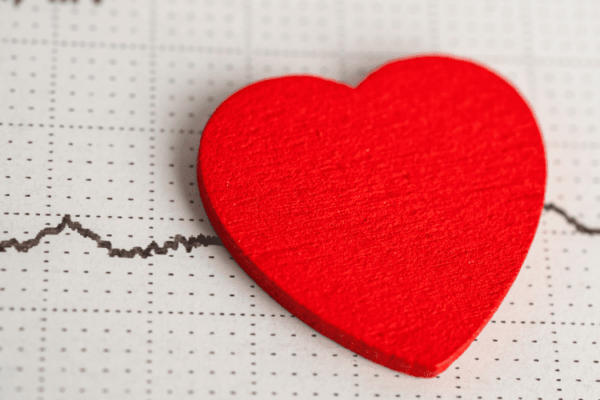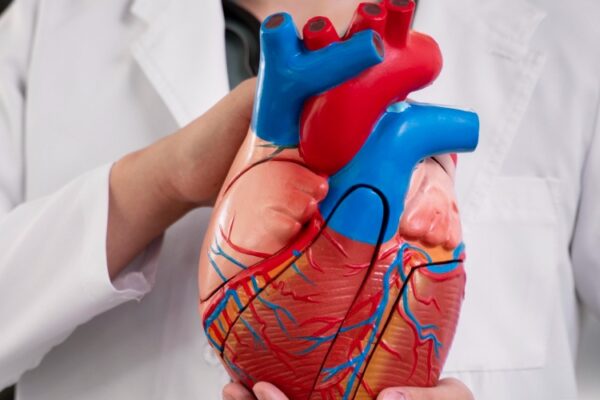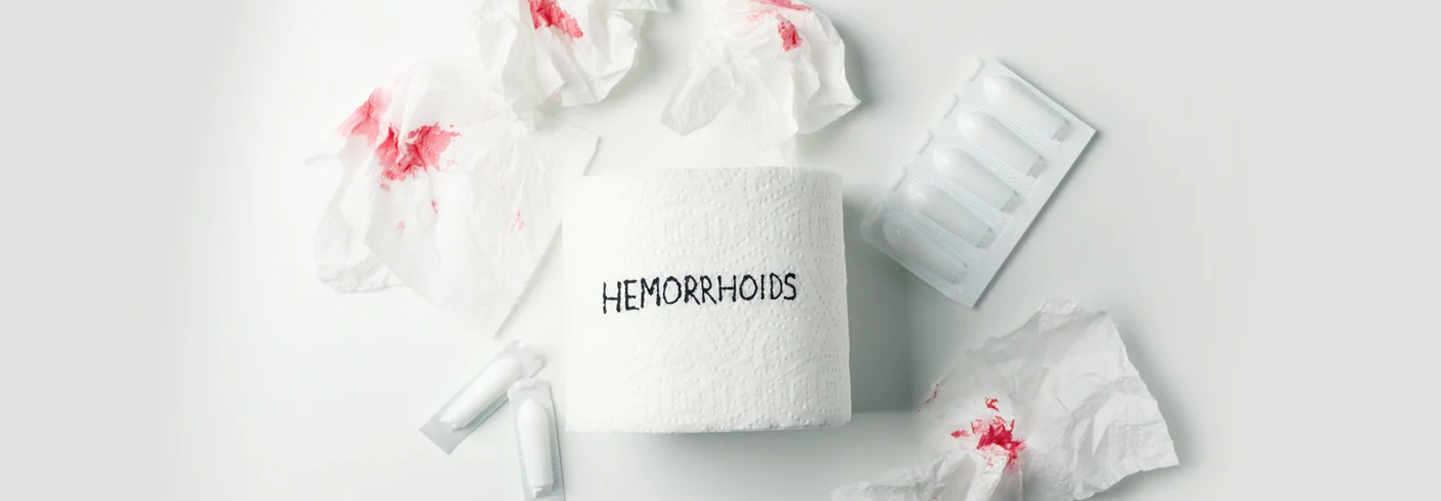
22 Feb Hemorrhoids: treatment, symptoms, causes
Hemorrhoids: treatment, symptoms, causes
By Island Hospital | Feb 24, 2022 4:53:17 PM
Hemorrhoids, also called piles, are a common problem in Malaysia. It is estimated that three out of four adults will have hemorrhoids at some point of their lives. Hemorrhoids have a number of causes, but often the cause is unknown.
Fortunately, hemorrhoids are not life-threatening and there are effective options to treat the condition. Home treatments and lifestyle changes such as eating more fiber in your diet can manage the problem but if your hemorrhoids have not resolved within a week, it is best to see a doctor. At Island Hospital, you may consult any of our specialists for hemorrhoids treatment.
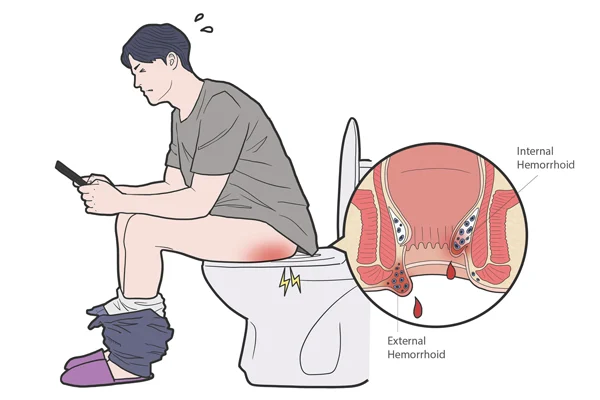
Hemorrhoids are swollen or inflamed veins in your anus and lower rectum. These enlarged veins can cause pain, anal itching and rectal bleeding.
Hemorrhoids can develop inside the rectum (internal hemorrhoids) or under the skin around the anus (external hemorrhoids).
Internal hemorrhoids are swollen veins that are located in the inside lining of the rectum. Its symptoms include bleeding after passing stool but it is usually painless. There may be a sensation of feeling soft bits of tissue protruding through the anus after defecation.
External hemorrhoids are swollen veins are located under the skin around the anus. Symptoms may include pain, bleeding, itchiness and swelling on passing stools. If the pain experienced is severe, it could mean blood clots in the vessel (thrombosis).
⦁ Painful lump or bulging tissue near your anus
⦁ Irritation and pain around the anus
⦁ Painful bowel movements
⦁ Blood on your tissue after pooping
⦁ Fecal leakage
Hemorrhoids are mostly seen in adults above 30 years old and in pregnant women but even teenagers can get it. It is associated with straining during defecation and constipation as well as situations that cause increased pressure in the haemorrhoidal veins. Pregnant women may have this condition because of the pressure of an enlarged uterus and hormonal changes.
Your risk of getting hemorrhoids increases if you:
⦁ Are overweight or obese.
⦁ Are pregnant.
⦁ Eat a low-fiber diet.
⦁ Have chronic constipation or diarrhea issues.
⦁ Regularly lift heavy objects.
⦁ Regularly stand or sit for long periods of time.
⦁ Tend to sit on the toilet for long periods of time.
⦁ Always strain when defecating.
Hemorrhoids can be diagnosed by a doctor based on symptoms and a physical exam.
Diagnosis can also be done with:
⦁ Digital rectal exam: Your provider inserts a gloved, lubricated finger into the rectum to feel for anything unusual such as swollen veins or growths.
⦁ Visual inspection. Because internal hemorrhoids are often too soft to be felt during a rectal exam, your doctor might examine the lower portion of your colon and rectum with an anoscope, proctoscope or sigmoidoscope.
These tests may be uncomfortable but are not painful and can done without anesthesia. Patients can go home the same day.
Your doctor may recommend using colonoscopy to check your entire colon if:
⦁ Your signs and symptoms suggest you might have another digestive system disease
⦁ You have risk factors for colorectal cancer
⦁ You are middle-aged and have not done a colonoscopy recently
Some hemorrhoids symptoms often go away on their own without treatment. Symptoms like pain and bleeding may last one week or slightly longer. You can take the following steps to reduce its symptoms:
Prevent constipation
⦁ Add more fiber in your diet – eat more fresh fruits and vegetables, take whole grain foods and less processed carbohydrates.
⦁ Drink more water – at least eight glasses of water per day.
⦁ Do regular exercise.
⦁ Avoid laxatives which can lead to diarrhea and worsen the hemorrhoids.
Relieving the pain
⦁ If you have bath tub, soak in a warm bath for 10 to 20 minutes a day
⦁ If any swelling occurs, use ice packs to reduce it or sit in a warm basin of water added with salt.
⦁ Take pain-relief medications such as paracetamol, aspirin or ibuprofen to reduce the pain
You should consult a doctor if symptoms get worse or become persistently bothersome. Seek help if the condition does not improve after a week of trying out the home remedies.
Medical treatment consists of outpatient and inpatient procedures:
⦁ Rubber band ligation: A small rubber band placed around the base of a hemorrhoid stops the blood supply to the vein, causing the lesion to shrink.
⦁ Hemorrhoidectomy: Surgery to remove large external hemorrhoids or prolapsed internal ones. It requires 2-4 weeks for recovery.
⦁ Hemorrhoid stapling: A stapling instrument removes an internal hemorrhoid. Or it pulls a prolapsed internal hemorrhoid back inside the anus and holds it there.
Yes, hemorrhoids can recur even after you have gone through surgery or other medical procedures to remove them. It is important to avoid constipation, straining during passing motion and other associated factors mentioned above.





